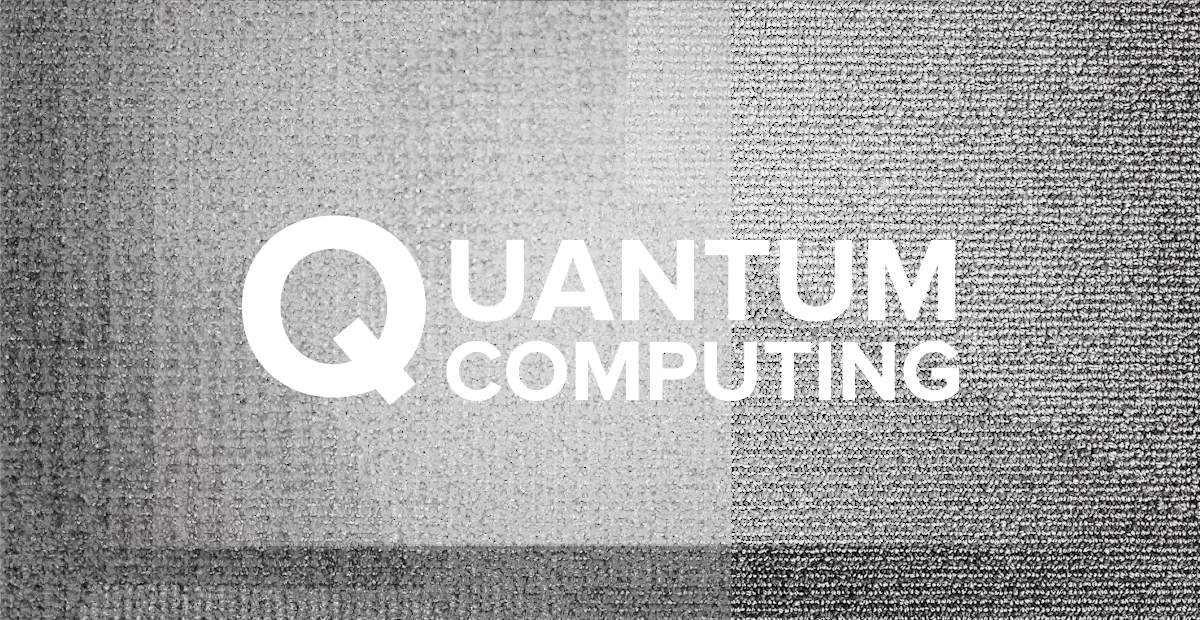このサイトは、私(@mifsee)が個人的に学びながら企業分析や銘柄分析を進め、その過程を記録としてまとめているものです。
あくまで個人の調査・整理を目的とした内容であり、誤りや実際と異なる情報が含まれる可能性があります。
また、MifseeではAI技術を活用した運用や、技術習得を目的とした実験的な取り組みも行っています。ご覧いただく際には、その点をご理解のうえご利用ください。
▼AIが音声変換したポッドキャスト版はこちらからどうぞ。(Spotifyで再生)
はじめに
量子コンピュータ分野が再び注目を集めています。
量子コンピュータは、以前から株式市場で話題となるテーマの一つでしたが、過去には期待が先行し、その後は注目が薄れるというサイクルを繰り返してきました。しかし、ここ最近になって技術的な進展や実用化への道筋が見え始めたことで、再び注目を集めています。
具体的には、量子コンピュータの商業利用を目指す企業の中で売上成長が見られる例が出てきたことや、AI技術の急速な発展と相まって、量子コンピュータが次世代の成長分野として期待されるようになっています。量子コンピュータは、従来のコンピュータでは解決が難しい複雑な問題を効率的に解決する潜在力を持つため、今後もさまざまな分野での応用が期待されています。
ここでは、私自身が量子コンピュータ関連銘柄を選択する上で、調査した先進的な技術と高い成長ポテンシャルを持つ銘柄をピックアップします。
量子コンピュータ市場は、なぜ今注目されているのか?
量子コンピュータ市場が注目を集める理由は、技術革新、実用化の進展、経済規模の拡大予測など、複数の要因からなる。
計算能力の飛躍的向上
量子コンピュータは、従来のコンピュータでは処理が困難だった複雑な問題を高速に解決できる潜在力を持つ。
特に、暗号解読、分子シミュレーション、物流最適化など、計算量が膨大な分野で革新をもたらすことが期待されている。
新薬の開発や材料科学、サプライチェーンの効率化といった分野において、現在の技術の限界を超える成果を生み出す可能性がある。
産業界での実用化の進展
IBM、Google、Microsoftなどの大手企業が量子コンピュータの研究開発を進め、プロトタイプや商用クラウドサービスを提供し始めている。
この技術が金融、医療、物流など多様な分野で活用されることで、従来のビジネスモデルを一変させる可能性がある。
たとえば、量子コンピュータを用いたリスク計算は金融業界におけるポートフォリオ管理を根本的に変え、物流最適化では配送ネットワークの効率化を実現する。
巨額の投資による推進力
各国政府と企業が、量子技術への巨額投資を加速していることも大きな要因である。
オーストラリア政府とクイーンズランド州が米国のPsiQuantumと協力し、量子コンピュータの開発プロジェクトを推進しているように、国家プロジェクトとしての量子技術開発が進行中。
また、米国では政府が国家戦略として量子分野を重点支援し、研究機関や大学、企業との連携を強化している。産業界全体での量子技術の普及が進みつつある。
市場規模の急速な拡大予測
市場調査では、量子コンピューティング市場が2032年までに126億米ドル規模に達すると予測されている。これは年平均成長率34.8%に相当し、関連技術やサービスの普及が急速に進む見込みを示している。
この成長率の高さは、量子コンピュータが次世代の基盤技術として、幅広い分野に応用されるポテンシャルを反映している。
生成AIとの統合による新たな可能性
量子コンピュータと生成AIの統合が進むことで、これまで不可能だった大規模データセットの解析や高度な予測アルゴリズムの実現が可能になると期待されている。
この統合は、ビジネス戦略や経済モデルに革新をもたらすだけでなく、例えば気候変動の予測やパーソナライズ医療の進展にも寄与する可能性がある。
長期的な社会的・産業的インパクト
量子コンピュータが完全に実用化されることで、医療、エネルギー、製造業、金融など多くの産業において効率性と革新がもたらされる。
量子通信技術の発展はセキュリティの分野にも影響を与え、暗号技術やネットワークの安全性が向上する。
このように、量子コンピュータは単なる技術革新にとどまらず、社会全体の基盤を変えるポテンシャルを秘めている。
これらの要因が絡み合い、量子コンピュータ市場は現在、世界的な注目を浴びている。技術的な課題は残るものの、未来を切り開く鍵としての期待が高まっている。
量子コンピュータとは?従来のコンピュータと何が違う?
量子コンピュータとは、量子力学の原理を利用して計算を行う次世代のコンピュータである。従来のコンピュータとの最大の違いは、情報の処理方式にある。
従来のコンピュータとの主な違い
- 情報の表現方法
従来のコンピュータはビット(0または1)で情報を処理する。一方、量子コンピュータは量子ビット(キュービット)を使用する。キュービットは0と1の状態を同時に持つ「重ね合わせ」を可能とする。 - 並列計算の能力
重ね合わせの性質により、量子コンピュータは複数の状態を同時に計算できる。この特性は、従来型のコンピュータでは逐次処理を必要とする問題を大幅に高速化する。 - エンタングルメント(量子もつれ)
量子もつれにより、複数のキュービットが互いに影響し合い、一つの操作で大規模な情報を同時に処理できる。従来のコンピュータには存在しない特性である。 - 計算速度のスケーリング
従来型コンピュータの処理能力はビット数に比例して増加するが、量子コンピュータではキュービット数が増えるごとに計算能力が指数関数的に向上する。
具体的な応用分野
量子コンピュータの特性により、以下の分野で従来型コンピュータを圧倒する可能性がある。
- 暗号解読: 公開鍵暗号を効率的に破る能力。
- 分子シミュレーション: 新薬や新素材の開発を加速。
- 最適化問題: 物流、金融ポートフォリオ管理の最適化。
- AIと機械学習: 複雑なデータセットの解析。
課題と限界
現在の量子コンピュータには以下の課題がある。
- 量子ビットの安定性: エラーが発生しやすい。
- スケーラビリティ: 大規模な量子プロセッサの構築は技術的に難しい。
- 応用範囲の限定: 実用化には適した分野が限られている。
量子コンピュータは、従来のコンピュータの置き換えではなく、特定の用途に特化した「補完的な存在」として進化すると考えられている。
今後の技術開発により、これらの課題を克服し、さらに幅広い応用が期待される。
量子コンピュータ市場はどれくらい成長すると予測されている?
量子コンピュータ市場は今後急速な成長が予測されている。
Fortune Business Insightsの報告によれば、2024年の市場規模は約11億6,010万ドルであり、2032年までに約126億2,070万ドルに達するとされている。
これは年平均成長率(CAGR)34.8%に相当する。
日本市場においても、Spherical Insightsの調査によると、2022年から2032年の間に年平均成長率35.8%で拡大し、2032年には約22億8,089万ドルに達すると予測されている。
これらの成長予測は、量子コンピュータ技術の進展と多様な産業分野への応用拡大に起因している。
特に、金融、医療、物流、エネルギーなどの分野での活用が期待されており、各国政府や企業からの投資も増加している。
量子コンピュータの量子の種類にはどのようなものがある?
量子コンピュータの量子の種類は、量子ビット(キュービット)を実現するための物理的な実装方法によって分類される。以下はその主な種類。
超伝導量子ビット
超伝導回路を用いて量子ビットを構築する方法。電流や磁場を超伝導状態で制御することで、量子状態を生成する。
- 特徴: 高速なゲート操作と比較的安定な量子状態。
- 採用例: IBM、Google、Rigetti Computing。
イオントラップ量子ビット
イオンを電磁場でトラップし、レーザー光で量子状態を操作する方法。
- 特徴: 高い精度と長いコヒーレンス時間(量子状態の持続時間)。
- 採用例: IonQ、ハネウェル(Honeywell)
フォトニック量子ビット
光子(光の粒子)を用いて量子情報を符号化する方法。
- 特徴: 低温が不要で、長距離通信への応用が可能。
- 採用例: Xanadu(ザナドゥ:非上場)、PsiQuantum(サイクオンタム:非上場)。
トポロジカル量子ビット
量子状態をトポロジー(幾何学的性質)で保護する方法。エラー率を低減できるとされているが、実現は難しい。
- 特徴: 理論上、非常に高い耐障害性。
- 採用例: Microsoft(開発中)。
核スピン量子ビット
原子核のスピンを利用して量子情報を符号化する方法。
- 特徴: 極めて長いコヒーレンス時間だが、操作が遅い。
- 採用例: 研究段階。
半導体量子ビット
半導体材料を用い、電子のスピンや軌道を制御して量子状態を生成する方法。
- 特徴: 現在の半導体技術との親和性が高い。
- 採用例: Intel、東芝。
ダイヤモンド窒素空孔(NVセンター)量子ビット
ダイヤモンド中の窒素不純物の欠陥構造を利用する方法。
- 特徴: 室温で動作可能で、量子センシングにも応用可能。
- 採用例: センシング技術での応用が中心。
分子量子ビット
分子中の電子や核のスピン状態を利用する方法。
- 特徴: 化学的に設計可能で、分子構造を制御できる。
- 採用例: 初期研究段階。
量子コンピュータの種類は、それぞれの特性や利点によって適した応用分野が異なる。
現時点では、超伝導量子ビットやイオントラップ量子ビットが主流であるが、トポロジカル量子ビットなどの新しいアプローチも将来の有望な技術として注目されている。
量子コンピュータ関連銘 (米株)
量子コンピュータ関連銘柄としては、IBM、Alphabet(Google)、Microsoftなどの大型銘柄が挙げられるが、ここでは中小型の銘柄に焦点を当て、個人的に注目しているものを挙げます。
IonQ(イオンQ)【IONQ】
企業の強みと特徴
IonQは、イオントラップ技術を基盤とした量子コンピュータの開発と商用化を推進する企業である。
同社の量子コンピュータは、Amazon Web Services(AWS)、Microsoft Azure、Google Cloudなどの主要クラウドプラットフォーム上で提供されており、幅広いユーザーがアクセス可能である。
また、IonQは独自のクラウドサービスも展開し、量子コンピューティングの普及に寄与している。
注目を集める理由
IonQは、2024年第3四半期に売上高1,240万ドルを記録し、前年同期比で102%の成長を遂げた。
さらに、同年第3四半期には6,350万ドルの新規受注を獲得し、その大部分は米国空軍研究所(AFRL)との5,450万ドルの契約によるものである。
技術面では、2025年末までに#AQ 64システムの実現を目指しており、量子ビットの精度向上やスケーラビリティの確保が期待されている。
財務状況や成長性
IonQは2024年第4四半期に売上高1,170万ドルを計上し、通年では4,310万ドルに達した。これは前年の2,200万ドルから95%の増加を示しており、同社の成長軌道が継続していることを示している。
新規受注に関しては、2024年通年で9,560万ドルを獲得し、前年の7,280万ドルから大幅に増加。特に、第4四半期には2,270万ドルの新規受注を記録し、米国空軍研究所(AFRL)との2,110万ドルの契約が含まれている。
現金および投資残高は、2024年末時点で3億6,380万ドルとなっており、前年の4億5,590万ドルから減少している。これは、積極的な投資活動によるものである。
同社は、2025年の売上高予想を7,500万ドルから9,500万ドルの範囲とし、Adjusted EBITDAの損失を1億2,000万ドルと見込ん
課題と展望
IonQは、量子コンピュータの商用化と技術開発で大きな進展を遂げているが、競争が激化する市場環境において、技術革新と市場拡大を継続的に推進する必要がある。
特に、量子ビットの精度向上やスケーラビリティの確保が今後の課題となる。
しかし、政府機関や大手企業との契約を通じて、安定した収益基盤を築いており、今後の成長が期待される。
リゲッティ・コンピューティング(Rigetti Computing)【RGTI】
企業の強みと特徴
リゲッティ(RGTI)は、量子コンピューティング分野におけるフルスタック企業であり、独自の超伝導量子ビットを基盤とした量子プロセッサの開発と製造を自社で行っている。
同社は、量子クラウドサービス(QCS)を通じて、企業や研究機関に量子コンピュータへのアクセスを提供し、量子コンピューティングと従来のクラシカルコンピューティングの統合を実現している。
注目を集める理由
リゲッティ(RGTI)は、、2024年12月に84量子ビットの新型量子コンピュータ「Ankaa-3」を発表し、99.5%の二量子ビットゲート忠実度を達成。
このシステムは、2025年初頭にAmazon BraketおよびMicrosoft Azureとの統合が予定されており、量子クラウドサービスの拡充が期待されている。
さらに、2025年中頃には36量子ビットのモジュラーシステムを、年末までには100量子ビットを超えるシステムのリリースを計画しており、量子コンピューティングの実用化に向けた取り組みを加速している。
財務状況や成長性
2024年第4四半期の売上高は227万ドルであり、前年同期の338万ドルから減少した。営業損失は1,850万ドルに拡大し、収益性の確保が課題となっている。
しかし、同社は2023年末に初の商用量子プロセッサ「Novera QPU」を発売し、モンタナ州立大学および英国政府への販売実績を持つ。また、台湾のQuanta Computerとの間で5年間で5億ドル規模の戦略的提携を締結し、量子コンピューティングの製造と市場投入の加速を図っている。
課題と展望
Rigettiは、米国国防高等研究計画局(DARPA)の「Quantum Benchmarking Initiative」に選出され、量子コンピューティング技術の実用化に向けた評価プロセスに参加している。同社のCEOであるSubodh Kulkarni氏は、今後3〜5年の間に量子コンピューティングの市場が拡大すると予測しており、長期的な視点での成長が期待されている。
ただし、競合他社との技術競争や収益性の確保といった課題も存在し、持続的な成長のためには技術開発と市場開拓の両面での取り組みが求められる。
Dウェイブ・クアンタム【QBTS】
企業の強みと特徴
D-Wave Quantum Inc.(QBTS)は、量子アニーリング技術を商用化した先駆者として知られ、フォルクスワーゲン、デンソー、トヨタ、NECなどの大手企業と協業し、物流最適化やスケジューリング、創薬など多様な分野での量子アプリケーションを展開している。
同社の量子システム「Advantage」は、5,000個以上の量子ビットを搭載し、ビジネス向けに設計されている。また、クラウドベースの量子サービス「Leap」を通じて、企業や開発者がリアルタイムで量子コンピューティングにアクセスし、量子アプリケーションを構築・実行できる環境を整えている。
注目を集める理由
D-Wave(QBTS)は、フォルクスワーゲン、デンソー、トヨタ、NECなどの大手企業と協業し、物流最適化やスケジューリング、創薬など多様な分野での量子アプリケーションを展開している。同社の量子システム「Advantage」は、5,000個以上の量子ビットを搭載し、ビジネス向けに設計されている。
また、クラウドベースの量子サービス「Leap」を通じて、企業や開発者がリアルタイムで量子コンピューティングにアクセスし、量子アプリケーションを構築・実行できる環境を整えている。
財務状況や成長性
2025年第1四半期の売上高は1,500万ドルで、前年同期比で509%増加した。これは、ドイツのユーリッヒ・スーパーコンピューティング・センターへのAdvantage2システムの販売が主な要因である。GAAPベースの粗利益は1,390万ドルで、前年同期比で736%増加した。
純損失は540万ドル(1株当たり0.02ドル)で、前年同期の1,730万ドル(1株当たり0.11ドル)から大幅に改善。
2025年3月31日時点での現金残高は3億430万ドルで、過去最高を記録した。
課題と展望
D-Waveは、量子アニーリング技術の商用化において先駆的な役割を果たしているが、競争が激化する市場環境において、技術革新と市場拡大を継続的に推進する必要がある。
特に、量子ビットの精度向上やスケーラビリティの確保が今後の課題となる。
クアンタム・コンピューティング(Quantum Computing)【QUBT】
企業の強みと特徴
クアンタム・コンピューティング(QCi:QUBT)は、統合フォトニクスおよび量子光学技術を基盤とする米国の企業であり、量子コンピューティングを応用したマシンとソリューションを開発している。
同社の製品は、室温で動作し、低消費電力で稼働する点が特徴で、人工知能、サイバーセキュリティ、リモートセンシングなど多岐にわたる分野への展開が可能。
特に、薄膜リチウムニオベート(TFLN)を利用した量子フォトニックチップの開発・製造に注力し、2025年にはアリゾナ州テンピに自社ファウンドリーを完成させている。
注目を集める理由
QCiは、ナノフォトニクスに基づいた量子マシンの開発と商用化において先進的なポジションにある。
NASA、デルフト工科大学、大手自動車メーカーなどとの提携を進めており、特にNASAとはLIDARデータ解析で量子技術を活用する契約を締結している。
また、アリゾナ州のフォトニックチップファウンドリーでは、データ通信、テレコム、量子対応アプリケーション向けに5件の初期注文を獲得しており、商用化フェーズに移行しつつある。
財務状況や成長性
2025年第1四半期の総収益は3万9,000ドルで、前年同期の2万7,000ドルから増加。営業損失は830万ドルと依然として赤字ではあるが、
ワラント負債の評価益により、2,360万ドルの非現金利益を計上し、結果的に1,700万ドルの純利益を記録した。
また、同年第1四半期には9,360万ドルの私募による資金調達を実施し、現金残高は1億6,640万ドルに達している。
過去1年間で1,200%以上の急騰を見せており、市場の期待も大きい。
課題と展望
QCiは、フォトニクス量子コンピューティング分野において独自性を持ち、革新的な製造能力を備えることで、成長ドライバーを確立しつつある。
一方で、安定的な売上成長と継続的なキャッシュフローの確保は今後の大きな課題であり、特に商用契約の拡大が成功の鍵を握る。
将来的には、量子AIや量子セキュリティ分野への応用展開も視野に入れており、継続的な技術革新と市場との接続強化が求められるフェーズにある。
量子セキュリティ関連の企業
アーキット・クアンタム(Arqit Quantum)【ARQQ】
企業の強みと特徴
アーキット・クアンタム(ARQQ)は、英国を拠点とするサイバーセキュリティ企業であり、量子安全な暗号化ソリューションを提供している。同社の主力製品であるSymmetric Key Agreement(SKA)プラットフォームは、軽量なソフトウェアエージェントを使用して、ネットワーク上の任意のデバイス間で安全な暗号鍵を生成・共有することを可能にする。
この技術は、量子コンピュータによる将来的な脅威にも対応可能であり、NSAのCSfC(Commercial Solutions for Classified)コンポーネントと互換性がある。SKAプラットフォームは、クラウドベースのサービス(SKA-PaaS)として提供されるほか、顧客の要件に応じた専用インスタンス(SKA-PI)としても展開されている。
注目を集める理由
アーキット(ARQQ)は、子安全な暗号化技術の分野で複数の業界賞を受賞しており、2024年にはIDC Innovator for Post-Quantum Cryptographyに選出された。
また、Mobile World Congress 2024では、GSMA Global Mobile Awardsの「Best Mobile Security Solution」と「CTO Choice Award for Outstanding Mobile Technology」を受賞している。
さらに、Intelとのパートナーシップを通じて、SKAソフトウェアをXeonプロセッサベースのデバイスに統合し、グローバルな販売展開を進めている。
財務状況や成長性
2024年度の売上高は29万3,000ドルであり、前年の64万ドルから減少した。これは、2024年度に大規模な永続的ライセンス契約がなかったことが主な要因である。
しかし、同社はEMEA地域の政府系エンドユーザーとの間で、年間7桁の収益が見込まれる複数年のエンタープライズライセンス契約を締結しており、2025年度からの収益貢献が期待されている。また、2024年9月末時点での現金残高は1,870万ドルであり、同年に実施した1,360万ドルの登録直接募集による資金調達が含まれている。
課題と展望
アーキットは、量子安全な暗号化技術の商用化において先駆的な役割を果たしているが、収益性の確保と市場拡大が今後の課題となる。
特に、SKAプラットフォームの商用展開を加速させるためには、既存のデモンストレーション契約から本格的なライセンス契約への移行が求められる。また、競争が激化する市場環境において、技術革新と市場開拓を継続的に推進する必要がある。
シールSQ【LAES】
企業の強みと特徴
シールSQは、量子耐性暗号技術を組み込んだセキュアマイクロコントローラーや関連サービスを提供している。
同社の製品は、スマートエネルギー、スマートホーム、医療・ヘルスケア、ITネットワークインフラ、自動車、産業オートメーションなど、多岐にわたる分野での応用が可能である。
特に、QS7001セキュアエレメントは、NIST標準のCRYSTALS-KyberおよびCRYSTALS-Dilithiumアルゴリズムを実装し、量子コンピュータによる攻撃からの保護を提供している。
注目を集める理由
シールSQは、量子コンピュータの進展によって従来の暗号技術が脆弱になるという課題に対応するため、量子耐性暗号技術の開発に注力している。
同社のQS7001セキュアエレメントは、ビットコインウォレットなどのブロックチェーン資産を量子攻撃から保護するために設計されており、CRYSTALS-Kyberによる鍵交換とCRYSTALS-Dilithiumによるデジタル署名を組み合わせている。
また、SEALSQは、量子耐性暗号技術をクラウドベースのサービスとして提供することで、より広範なユーザーに対してアクセス可能なソリューションを提供している。
財務状況や成長性
SEALSQの2024年の売上高は約1,098万ドルであり、前年の3,006万ドルから減少した。この減少は、従来の半導体製品から量子耐性半導体技術への移行によるものである。
同社は、2025年に新製品の商業化を予定しており、売上の回復と成長が期待されている。また、2025年には研究開発費として720万ドルを計上し、量子耐性技術の開発を継続している。
課題と展望
SEALSQは、量子耐性暗号技術の市場において先駆的な役割を果たしているが、競争が激化する市場環境において、技術革新と市場拡大を継続的に推進する必要がある。
特に、量子耐性暗号技術の標準化と実用化に向けた取り組みが求められている。また、同社は、クラウドベースの量子コンピューティングサービスの提供や、量子耐性暗号技術を組み込んだセキュアエレメントの開発を通じて、量子コンピュータの脅威に対応するための包括的なソリューションを提供している。
量子コンピュータの部品や関連技術を供給する企業
ハネウェル【HON】
企業の強みと特徴
ハネウェルは、アメリカの多国籍企業であり、電子制御システムや自動化機器の製造・販売を行っている。同社は、航空宇宙、建築、産業、物流、作業者など、多岐にわたる分野でテクノロジーを活用し、よりスマートで安全、持続可能な世界の実現を目指している。
量子コンピューティングへの取り組み
ハネウェルは、量子コンピューティング分野にも積極的に参入している。同社の量子コンピュータは、トラップイオン技術に基づいており、高い性能を誇る。
2021年には、Cambridge Quantum Computingと合併し、世界最大の単独型量子コンピューティング企業を設立した。
この新会社は、量子コンピュータのハードウェアとソフトウェアの両面でリーダーシップを発揮している。
注目を集める理由
ハネウェルは、量子コンピューティング技術を活用し、サイバーセキュリティの強化にも取り組んでいる。
同社は、量子コンピュータにより強化された暗号鍵を活用し、公益事業者のデータセキュリティを強化するソリューションを提供している。ガス、水道、電気の公益事業者向けスマートメーターにおいて、サイバー脅威からの保護を強化している。
財務状況や成長性
ハネウェルは、フォーチュン100企業の1つであり、約13万人の従業員を抱える巨大企業である。同社の多角的な事業展開と技術革新により、安定した成長を続けている。
量子コンピューティング分野への積極的な投資と取り組みも、今後の成長を支える要因となっている。
量子コンピュータ分野に投資できるETFは?
量子コンピュータ分野への投資を検討する際、関連企業に幅広く投資できるETFとして「Defiance Quantum ETF(ティッカー: QTUM)」が挙げられる。
QTUMは、量子コンピューティング、機械学習、人工知能(AI)、ビッグデータ、クラウドコンピューティングなどの分野で活躍する企業に投資するETFである。
主な特徴
- 構成銘柄数: 約70社
- 経費率: 0.40%
- 主な投資対象: 量子コンピュータの研究・開発、関連ハードウェア、データ接続、冷却装置、ビッグデータ、機械学習などの分野で活動する企業
主な構成銘柄
- Baidu Inc(BIDU)
- ASUSTeK Computer(2357 TT)
- Alphabet Inc(GOOGL)
- NEC Corp(6701 JP)
- IonQ Inc(IONQ)
- Microsoft Corp(MSFT)
- Blackberry Ltd(BB)
- Taiwan Semiconductor Manufacturing(TSM)
- Nokia Corp(NOK)
- Qualcomm Inc(QCOM)
これらの企業は、量子コンピューティング技術の研究・開発や関連分野での活動を行っており、QTUMを通じてこれらの企業に分散投資することが可能であるが、QTUMは量子コンピューティング関連企業だけでなく、AIやビッグデータ、クラウドコンピューティングなどの分野にも投資しているため、投資先の分野が広範である点を理解しておく必要がある。
量子コンピュータ関連銘柄(日本株)
日本株にはほとんど投資していませんが、これらの企業は量子コンピュータ分野において注目する価値があると感じています。
QDレーザ【6613】
企業の強みと特徴
QDレーザは、半導体レーザや網膜走査型レーザアイウェアの開発・製造・販売を手掛ける企業である。特に、網膜に直接映像を投影する「RETISSA」シリーズは、視覚障害者向けの補助デバイスとして注目を集めている。
量子コンピューティングとの関連性
同社は、半導体レーザ技術を基盤としており、量子ドットレーザの開発も行っている。量子ドットレーザは、量子コンピューティングの光源としての応用が期待されており、同社の技術は量子コンピュータの発展に寄与する可能性がある。
課題と展望
QDレーザは、視覚障害者向けデバイスの市場拡大や、量子ドットレーザの応用分野の開拓が今後の成長の鍵となる。特に、量子コンピューティング分野での技術応用が進めば、同社の技術力がさらに評価される可能性がある。
株価(6613)チャートを見る(Yahoo!JAPAN ファイナンス)
フィックスターズ【3687】
企業の強みと特徴
フィックスターズは、コンピュータの性能を最大限に引き出す高速ソフトウェア開発を専門とする企業である。
特に、マルチコアプロセッサ関連事業に注力し、CPU、GPU、FPGAなど多様なハードウェア向けのソフトウェア高速化サービスを提供している。
量子コンピューティングへの取り組み
同社は、量子コンピューティング分野にも積極的に参入している。2017年には、量子アニーリング方式の量子コンピュータを商用提供するD-Wave Systems社と日本で初めて提携し、量子アニーリング技術の応用を推進している。また、2021年からは、量子アニーリングクラウド「Fixstars Amplify」を提供し、量子アニーリングと相互運用可能なGPUベースの高性能な計算基盤を提供している。
注目を集める理由
フィックスターズは、量子コンピューティングの商用利用と社会実装を先行する企業として注目されている。物流、製造、交通、通信、金融など多様な分野での量子コンピューティングの活用が期待されており、同社の技術とサービスはこれらの分野での課題解決に寄与している。
財務状況や成長性
同社は、量子コンピューティング市場の成長に伴い、今後の収益拡大が期待されている。特に、量子アニーリング技術を活用したサービスの提供により、新たな収益源の確保が見込まれる。
株価(3687)チャートを見る(Yahoo!JAPAN ファイナンス)
ブレインパッド【3655】
企業の強みと特徴
ブレインパッドは、データ活用の推進を専門とする企業であり、データ解析やAIソリューションの提供を通じて、企業のデジタルトランスフォーメーション(DX)を支援している。
特に、データマイニングや機械学習の分野で豊富な実績を持ち、多様な業界におけるデータ活用の最適化を実現している。
量子コンピューティングへの取り組み
同社は、量子コンピューティング技術の研究開発にも積極的に取り組んでいる。
2017年には、公式ブログ「Platinum Data Blog」において、量子アニーリングに関する解説記事を掲載し、量子コンピューティングの基礎から応用までの情報発信を行っている。
また、社内外の最新技術知見を共有するための勉強会を定期的に開催し、量子コンピューティングの専門家を招いたセミナーも実施している。
注目を集める理由
ブレインパッドは、データ解析とAIソリューションの提供に加え、量子コンピューティング技術の研究開発を進めている点で注目されている。
特に、量子アニーリング技術の応用に関する情報発信や社内外の勉強会の開催を通じて、量子コンピューティング分野での知見を深めている。これらの取り組みは、同社の技術力と先進性を示すものであり、今後の成長が期待される。
株価(3655)チャートを見る(Yahoo!JAPAN ファイナンス)
セック【3741】
企業の強みと特徴
セックは、組込みソフトウェアの開発を主力とする企業であり、ロボット、AI、宇宙、デジタルツインなど多岐にわたる分野での実績を持つ。
特に、リアルタイムシステムの開発に強みを持ち、高度な技術力で顧客のニーズに応えている。
量子コンピューティングへの取り組み
同社は、量子コンピューティングの実用化に向けたソフトウェアの研究開発を積極的に進めている。大阪大学量子情報・量子生命研究センターと共同で、量子プログラムの高速化や量子マルチプログラミング機能の開発を行い、量子コンピュータのクラウドサービスでの提供を開始している。
注目を集める理由
セックは、量子コンピューティング分野での先進的な取り組みが評価されている。特に、量子プログラムの高速化や量子マルチプログラミング機能の開発は、量子コンピュータの実用化に向けた重要なステップとされており、同社の技術力と先見性が注目されている。
株価(3741)チャートを見る(Yahoo!JAPAN ファイナンス)
まとめ
量子コンピュータは、将来性や成長性が注目される投資テーマです。これまでに、投資対象となる個別銘柄やETF、日本株について詳しく見てきました。
今回挙げた量子コンピュータ関連銘柄は、規模の小さい企業が多く、技術開発が進行中であるため、実際の利益成長はまだ具体的には見えていません。その中でも、IONQは赤字経営が続いているものの、売上を着実に拡大しており、投資家からの信頼を徐々に得ている印象です。
一方で、この分野は市場の期待感によって株価が先行して動く傾向があり、投資には注意が必要です。特に、量子コンピュータが商用化されるまでの時間や技術的課題は依然として存在します。
AIが急速に発展する中で、量子コンピュータ技術も実現可能な段階に近づきつつあります。量子コンピュータに関連するインパクトのあるニュースが発表されるたびに、市場から再評価される可能性が高く、今後も注目していくべき分野と言えるでしょう。
私も活用中!moomoo証券の機能を最大限に引き出そう
私がmoomoo証券を使っていて最も気に入っている点は、アプリが使いやすく、投資において重要となる深い情報収集が簡単にできること。
さらに、大口や中口投資家の動向を確認できる機能があり、銘柄の先行きを考える上でとても助かっています。各銘柄のニュースや決算関連情報が豊富で、日本語自動翻訳もサポートしているため、海外の情報を即座にチェックできるのが嬉しいポイント。
米国株取引手数料もmoomoo証券が一番安いです。
興味のある方は、このバナーリンクから簡単に登録できます!









